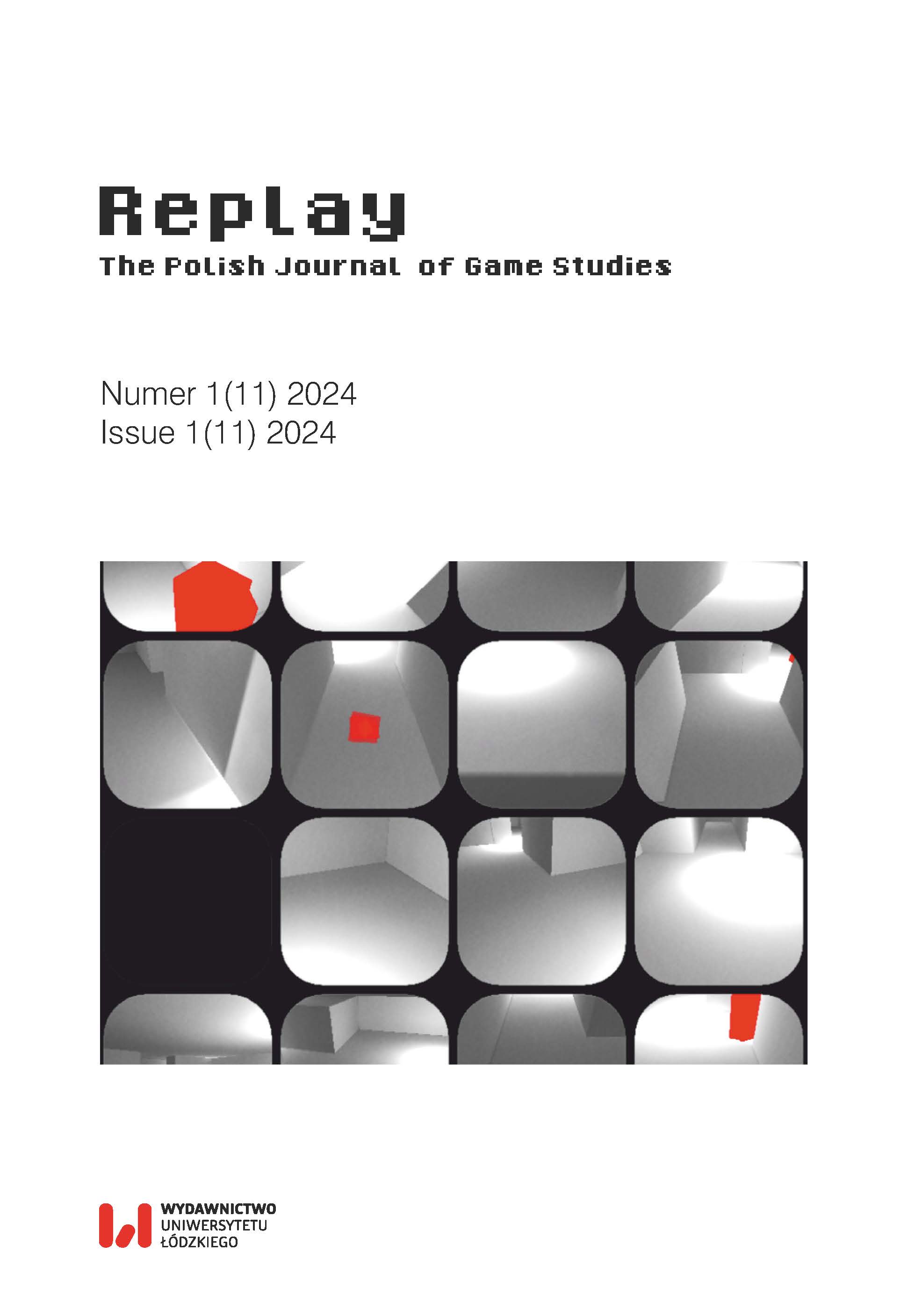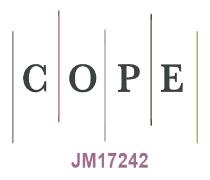No Uglies: Rejection and Utopia in "Animal Crossing: New Horizons"
DOI:
https://doi.org/10.18778/2391-8551.11.05Keywords:
Animal crossing, utopia, empathy, cruelty, paratext, communityAbstract
What motivates cruelty against video game characters designed to be friendly? Using human-to-NPC interactions within the game Animal Crossing: New Horizons as a case study, this paper seeks to define what aspects of a cozy game contribute towards public displays of aggression or kindness toward the game’s characters. An examination of public forums dedicated to discussing villagers deemed ugly reveals the importance of parasocial connections in the utopian community planning aspects of Animal Crossing’s gameplay. The resulting online discourse surrounding ethical treatment of villagers becomes part of players’ conceptions of their role as social planner in-game, further solidifying which behaviors and objectives will yield them the coziest experience. Paratext, therefore, plays an active role in the conception and socialization of Animal Crossing players’ utopian urban projects.
References
Asia, K. (2021). The Ugly Club: Prosocial Ludonarratives for Inciting Empathy Towards Uncharismatic Species. University of Otago.
Google Scholar
Blom, J. (2022). Attachment, Possession or Personalization?: Why the Character Trade in Animal Crossing: New Horizons Exploded. Replaying Japan, 4, 23–34.
Google Scholar
Cesar, M. (2020). Fear Thy Neighbour: Socialisation and Isolation in Animal Crossing. Loading, 13(22), 89–108.
Google Scholar
DOI: https://doi.org/10.7202/1075265ar
Chan, A.A.Y.-H. (2012). Anthropomorphism As a Conservation Tool. Biodiversity and Conservation, 21(7), 1889–1892. https://doi.org/10.1007/s10531-012-0274-6
Google Scholar
DOI: https://doi.org/10.1007/s10531-012-0274-6
Chua, S.M. (2022). Navigating Conflict between Research Ethics and Online Platform Terms and Conditions: A Reflective Account. Research Ethics, 18(1), 39–50. https://doi.org/10.1177/17470161211045526
Google Scholar
DOI: https://doi.org/10.1177/17470161211045526
Coanda, I. & Aupers, S. (2021). Post-Human Encounters: Humanising the Technological Other in Videogames. New Media & Society, 23(5), 1236–1256. https://doi.org/10.1177/1461444820912388
Google Scholar
DOI: https://doi.org/10.1177/1461444820912388
Consalvo, M. (2017). When Paratexts Become Texts: De-Dentering the Game-As-Text. Critical Studies in Media Communication, 34(2), 177–183. https://doi.org/10.1080/15295036.2017.1304648
Google Scholar
DOI: https://doi.org/10.1080/15295036.2017.1304648
Geraghty, L. (2015). Introduction: Fans and Paratexts. In: L. Geraghty (Ed.), Popular Media Cultures: Fans, Audiences and Paratexts (pp. 1–14). Palgrave Macmillan UK.
Google Scholar
DOI: https://doi.org/10.1057/9781137350374_1
Harth, J. (2017). Empathy with Non-Player Characters? An Empirical approach to the Foundations of Human/Non-Human Relationships. Journal of Virtual Worlds Research, 10(2), 1–25.
Google Scholar
DOI: https://doi.org/10.4101/jvwr.v10i2.7272
Hernandez, P. (2020, April 29). Animal Crossing’s ‘Kicking Out Ugly Villagers’ Phenomenon. Polygon. Online: https://www.polygon.com/2020/4/29/21238552/
Google Scholar
animal-crossing-new-horizons-acnh-switch-ugly-villagers-trading-amiibo-moving-out (accessed on January 10, 2024).
Google Scholar
Ho, J.C.F. & Ng, R. (2022). Perspective-Taking of Non-Player Characters in Prosocial Virtual Reality Games: Effects on Closeness, Empathy, and Game Immersion.
Google Scholar
Behaviour & Information Technology, 41(6), 1185–1198. https://doi.org/10.1080/0144929X.2020.1864018
Google Scholar
DOI: https://doi.org/10.1080/0144929X.2020.1864018
Kłosiński, M. (2018). Games and Utopia. Acta Ludologica, 1(1), 4–14.
Google Scholar
Kouratoras, M. (2022). Digital Dramaturgy: Interactive Fiction Video Games as Cyborg Theatre of Cruelty and Ethical Choice-Making. [Unpublished doctoral dissertation.] Aalto University.
Google Scholar
Lewis, J.E., Trojovsky, M., & Jameson, M.M. (2021). New Social Horizons: Anxiety, Isolation, and Animal Crossing During the COVID-19 Pandemic. Frontiers in Virtual Reality, 2(14). https://doi.org/10.3389/frvir.2021.627350
Google Scholar
DOI: https://doi.org/10.3389/frvir.2021.627350
Mukherjee, S. (2015). Video Games and Storytelling: Reading Games and Playing Books. Palgrave MacMillan UK.
Google Scholar
DOI: https://doi.org/10.1057/9781137525055
Mukherjee, S. (2016). Videogames As “Minor Literature”: Reading Videogame Stories through Paratexts. Gramma: Journal of Theory and Criticism, 23, 60–75.
Google Scholar
Pearce, K.E., Yip, J.C., Lee, J.H., Martinez, J.J., Windleharth, T.W., Bhattacharya, A., & Li, Q. (2022). Families Playing Animal Crossing Together: Coping with Video Games During the COVID-19 Pandemic. Games and Culture, 17(5), 773–794. https://doi.org/10.1177/15554120211056125
Google Scholar
DOI: https://doi.org/10.1177/15554120211056125
Reay, E. (2022). The Child in Games: From the Meek, to the Mighty, to the Monstrous. [Unpublished doctoral dissertation.] University of Cambridge.
Google Scholar
Rose, M.C. (2023). Playful, Sociable, Cute, Quarantined – Interactions with Kawaii Characters in Animal Crossing: New Horizons During COVID-19. Japanese Studies, 1–15. https://doi.org/10.1080/10371397.2023.2211944
Google Scholar
DOI: https://doi.org/10.1080/10371397.2023.2211944
Short, T.X., Ordon, A., Hurd, D., Howe, C., Forbes, J., Eiserloh, S., Diaz, J., Cook, D., & Meiners, R. (2018, January 24). Cozy Games. Lostgarden. Online: https://lostgarden.home.blog/2018/01/24/cozy-games/ (accessed on January 10, 2024).
Google Scholar
Švelch, J. (2017). Paratexts to Non-Linear Media Texts: Paratextuality in Video Games Culture. [Unpublished doctoral dissertation.] Charles University in Prague.
Google Scholar
Tong, X., Gromala, D., Neustaedter, C., Fracchia, F.D., Dai, Y., & Lu, Z. (2021). Players’ Stories and Secrets in Animal Crossing: New Horizons-Exploring Design Factors for Positive Emotions and Social Interactions in a Multiplayer Online Game. Proceedings of the ACM on Human-Computer Interaction, 5(CHI PLAY), 1–23. https://doi.org/10.1145/3474711
Google Scholar
DOI: https://doi.org/10.1145/3474711
Waszkiewicz, A. & Bakun, M. (2020). Towards the Aesthetics of Cozy Video Games. Journal of Gaming & Virtual Worlds, 12(3), 225–240. https://doi.org/10.1386/jgvw_00017_1
Google Scholar
DOI: https://doi.org/10.1386/jgvw_00017_1
Zhu, L. (2021). The Psychology Behind Video Games During COVID‐19 Pandemic: A Case Study of Animal Crossing: New Horizons. Human Behavior and Emerging Technologies, 3(1), 157–159. https://psycnet.apa.org/doi/10.1002/hbe2.221
Google Scholar
DOI: https://doi.org/10.1002/hbe2.221
Nintendo. (2020). Animal Crossing: New Horizons. Nintendo Entertainment.
Google Scholar
Downloads
Published
How to Cite
Issue
Section
License

This work is licensed under a Creative Commons Attribution-NonCommercial-NoDerivatives 4.0 International License.










